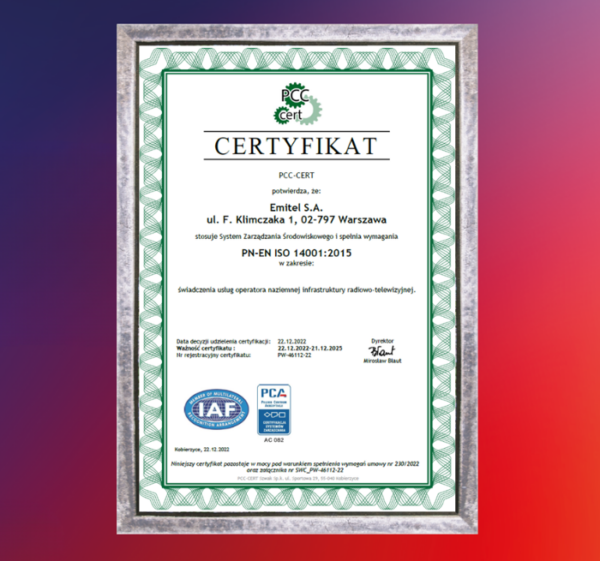Due to the ongoing periodic maintenance and overhaul of the antenna system at RTCN Lublin/Piaski, some viewers in Chełm and its surrounding area are experiencing problems with terrestrial TV signal reception. In order to ensure continuity of service and the best possible quality of digital terrestrial TV signal for viewers, after obtaining the necessary administrative permits, Emitel will launch additional emissions to boost MUX-1, MUX-2 and MUX-3 multiplex signals.
The ongoing works are technically complex and require a great deal of effort on the part of Emitel’s experts, including temporarily switching the emissions to a backup antenna system, leading to a reduction of the broadcasting power of three digital terrestrial television multiplexes – MUX-1, MUX-2 and MUX-3 – in some areas of the Lublin voivodeship. These issues concern, among others, the city of Chełm, due to the landscape, in particular the hills that block signals broadcast by the Piaski station.
Due to concerns raised by viewers and given that the works will be ongoing until the 27th of September, Emitel has made a decision to launch additional emissions in order to provide Chełm with boosted signals from all three multiplexes.
The emissions will begin from the 90-metre-tall SLR Kumowa Dolina tower immediately after obtaining the needed permits from the Office of Electronic Communications. In the case of the residents of Chełm, the new broadcasting facility lines up with the direction of the transmitter in Piaski, which means that it will not be necessary to adjust antennas or change settings on TV sets.
The RCTN Lublin/Piaski Radio and Television Broadcasting Centre broadcasts radio and television programmes for nearly 1.2 million inhabitants of Lublin voivodeship. The existing antennas have served the inhabitants of the voivodeship for nearly 30 years, providing them with analogue and digital television broadcasts. The periodic maintenance and equipment overhauls in all broadcasting facilities enables Emitel to alleviate the risk of serious failures and prevent the situations that could potentially render receiving UKF and DVB-T broadcasts impossible, thus ensuring the highest quality of services.











